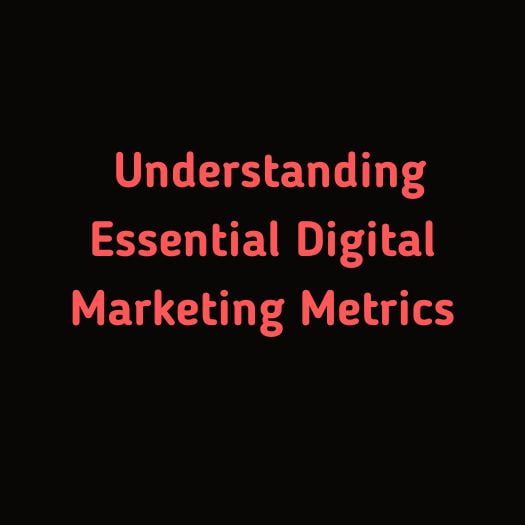Digital marketing is evolving at an incredible rate and companies must adapt quickly in order to stay abreast of its latest trends and methods. Metrics provide insight into the effectiveness of our digital marketing campaigns which allow us to pinpoint which strategies are effective while others may not be. With so many metrics available it may be overwhelming when choosing which ones are relevant – in this guide we cover some of essential measures of digital marketing every SEO professional should know about.
Different types of Digital Metrics

Website Traffic Metrics
Traffic metrics provide insight into who is visiting your website, from where they come, how often, as well as total site visits, new users vs returning visitors, traffic sources and bounce rates are essential measures of its performance and efficacy of advertising campaigns and improving overall website performance.
Social Media Metrics
Metrics for social media marketing campaigns can provide insight into reach, participation and effectiveness of media marketing efforts. Measures such as followers, shares, likes engagement rates as well as sentiment analysis provide key data points into target audience’s interests behaviors preferences and behavior.
Email Marketing Metrics
Marketing metrics for email can provide valuable insight into the effectiveness of your campaigns and help to refine your email strategy. Measures such as opening rate, click-through rate convert rate unsubscribe rates and bounce rates can give insight into subscribers preferences and behaviors.
PPC Metrics
Its Pay-per-click (PPC) metrics provide insight into the performance of paid search ads, helping you optimize campaigns to increase return on investment (ROI). Metrics such as cost per click (CPC), click-through rate (CTR), conversion rate and return on investment are essential in measuring the effectiveness of ads.
SEO Metrics
Search Engine Optimization (SEO) metrics provide an important way to measure the efficacy and effectiveness of any efforts you undertake to increase website rankings on search engines. Key indicators such as natural traffic and keyword ranking backlinks as well as domain authority are indispensable measures of measuring SEO strategy’s efficacy and effectiveness.
Content Marketing Metrics
Content marketing metrics provide you with an opportunity to evaluate the effectiveness of your marketing strategies and measure how viewers interact with the material that you produce. Metrics such as page views, amount of time spent on page, social shares and conversion rates give insight into its effectiveness as well as provide tools for optimizing content strategy development.
Conversion Rate Metrics
Conversion rate metrics enable you to assess and measure the success of your marketing efforts in terms of creating prospects or sales leads. Metrics such as your campaign conversion rate, goals completed or revenue per conversion provide important insight into campaign performance as well as helping optimize the effectiveness of conversion rate optimization (CRO).
Customer Lifetime Value Metrics are available.
Customers’ lifetime value (CLV) metrics allow you to evaluate both the customer value and revenue they bring your company over time. AOV measures, customer retention rates, CAC costs are essential elements in understanding and increasing CLV.
Net Promoter Score Metrics
Net Promoter Score (NPS) metrics are designed to assess customer happiness and loyalty. As your NPS increases, more likely are customers likely to recommend your company to others and increase customer retention. NPS metrics allow businesses to evaluate how effective their customer care and strategies for customer satisfaction are performing.
Social Advertising Metrics
Social advertising metrics provide a useful way to gauge the success of paid social media ads on platforms such as Facebook, Twitter, LinkedIn and Instagram. Metrics such as costs per click (CPC) and click-through rates (CTR) provide invaluable information about the effectiveness of your ads while aiding in optimizing your social media advertising strategy.
Marketing metrics for digital are essential in evaluating the success of your marketing campaigns and optimizing return on investment. By understanding and tracking these key metrics, you will gain invaluable insight into customer behavior and preferences allowing you to optimize marketing efforts to get maximum impact and profit increase. Remember that not every metric should be treated equally – instead focus on those closest to company goals so as to make informed decisions and further expand your business.
Discover more from TechResider Submit AI Tool
Subscribe to get the latest posts sent to your email.

